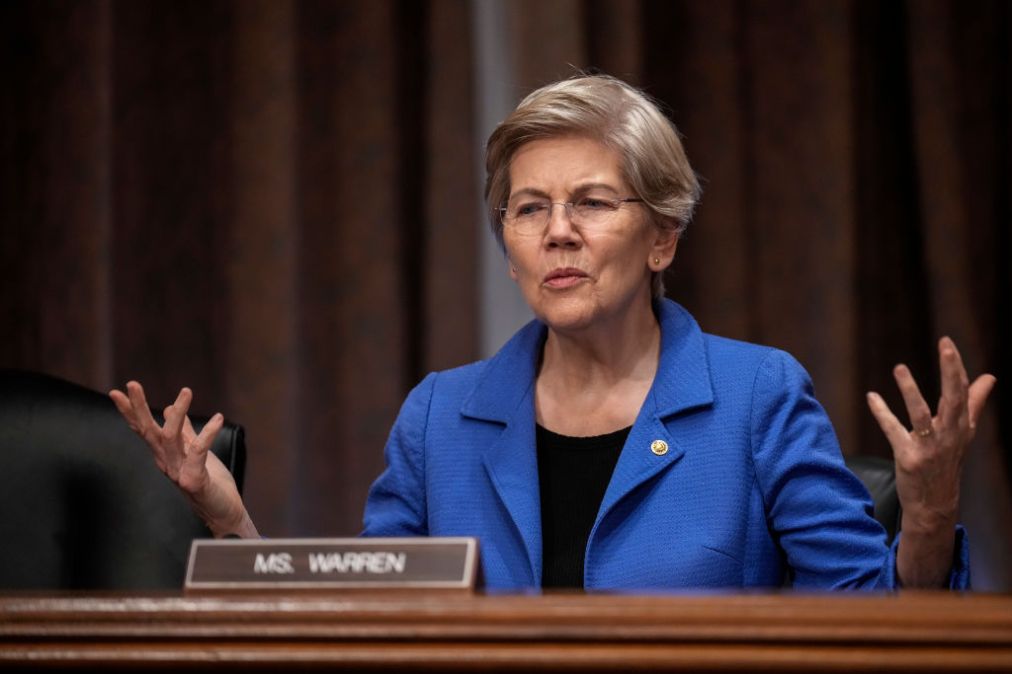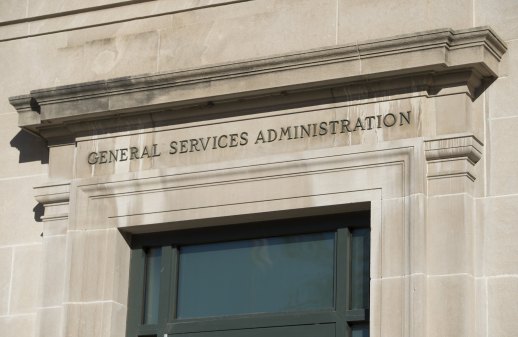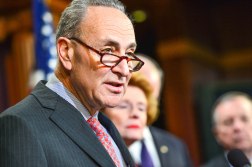Warren wants Trump White House to promise it won’t bail out OpenAI

Sen. Elizabeth Warren, D-Mass., is asking the Trump administration to detail any plans it has to subsidize AI companies, alleging that OpenAI might be positioning itself for such relief, despite denials by its leadership.
Warren’s Tuesday letter comes as the ChatGPT owner has faced questions in recent weeks about the health of its finances and whether it’s becoming so enmeshed in the U.S. economy that the federal government should or would prevent its failure — in other words, whether it’s become “too big to fail.”
The speculation was enough to elicit a response from OpenAI CEO Sam Altman, who earlier this month pushed back on the theories in a social media post and said the company should not be bailed out in the event of failure. Yet, Warren is still seeking information about any potential plans by the government to “prop up” the company, arguing OpenAI’s decisions paint a different picture.
“While Mr. Altman has claimed that the company is not looking for a ‘bail out,’ OpenAI’s actions suggest that it may be pursuing a deliberate strategy to entangle itself with the federal government and the broader economy so the government has no choice but to step in with public funds,” Warren wrote. “We have seen this before: take on enough debt, make enough risky bets, and then demand a taxpayer bailout when those bets go south so the economy does not crash.”
The letter was addressed to White House AI and crypto czar David Sacks and Office of Science and Technology Policy Director Michael Kratsios, and asks for assurances that the administration will not bail out OpenAI or any of its competitors should they fail. Warren also seeks details on governmental assistance — including loans or tax credits — that the administration plans to give OpenAI or other companies and information about any meetings with OpenAI or other companies on a potential “federal backstop.”
The primary source for many of Warren’s concerns is a comment letter OpenAI sent to the White House during a recent request for information, urging the administration to provide assistance such as AI supply chain support via tax credits and capital. Specifically, the company asked the administration to explore using the Advanced Manufacturing Investment Credit and Defense Production Act.
“Tax credits and loan guarantees are important tools that the federal government should deploy to support critical industries, strengthen supply chains, and create good-paying American jobs,” Warren said. “These tools should be deployed without placing taxpayers at risk while billionaire executives and investors reap all the benefits.”
Warren also pointed to AI executives’ investments in President Donald Trump’s ballroom and a now-walked-back comment from OpenAI Chief Financial Officer Sarah Friar suggesting the government could “backstop” its investments in data centers. While Friar later clarified on social media that the word “backstop” had “muddied” her point, Warren said the company has still directly asked for assistance.
It’s not clear if Warren will get a response, but as a prominent player in financial regulation, her attention on OpenAI is of interest. Warren was the architect of the Consumer Financial Protection Bureau, which was established in the wake of the 2008 financial crisis to regulate Wall Street, but has since come under fire from the Trump administration, which accused it of advancing “woke” policies.
The White House didn’t respond to a request for comment on whether it received the letter or initial reactions. An OpenAI spokesperson, meanwhile, directed FedScoop to Altman’s social media post.
Warren is not the only congressional Democrat seeking answers from the administration about a potential “AI bubble.”
Rep. Suhas Subramanyam, D-Va., penned a letter to Federal Reserve Chair Jerome Powell and Securities Exchange Commission Chair Paul Atkins calling for an investigation into an AI bubble. He asked the officials to detail the impact an AI-related bubble would have on the U.S. economy, spending, and jobs, as well as how the federal government could prepare for the ramifications.
In response to FedScoop’s inquiry, a spokesperson for the Federal Reserve said they “received the letter and plan to respond.” A spokesperson for the SEC declined to comment.






